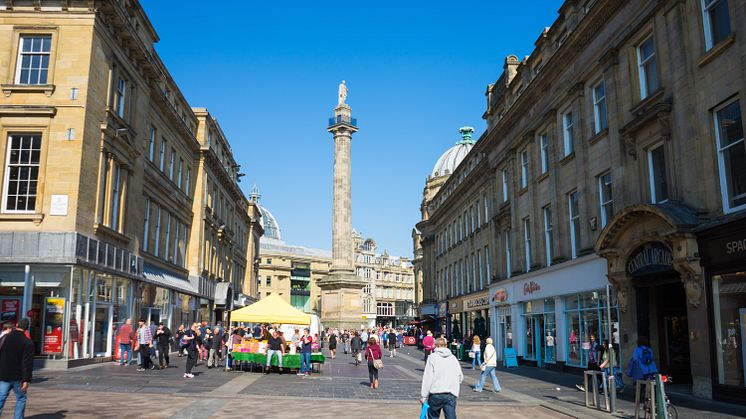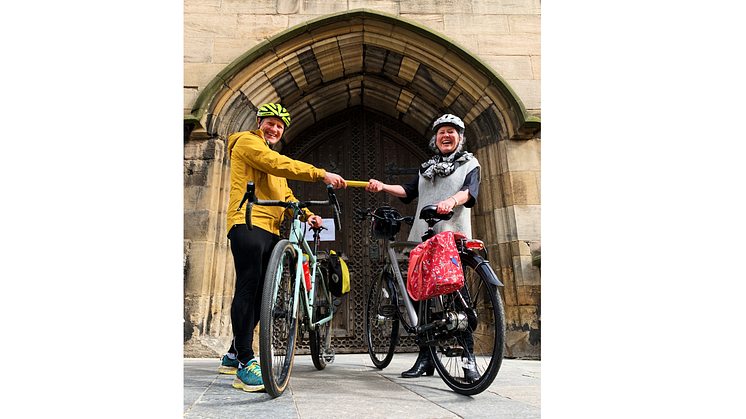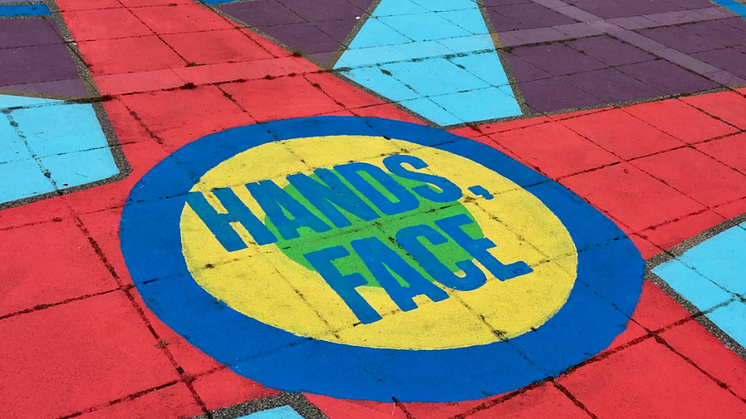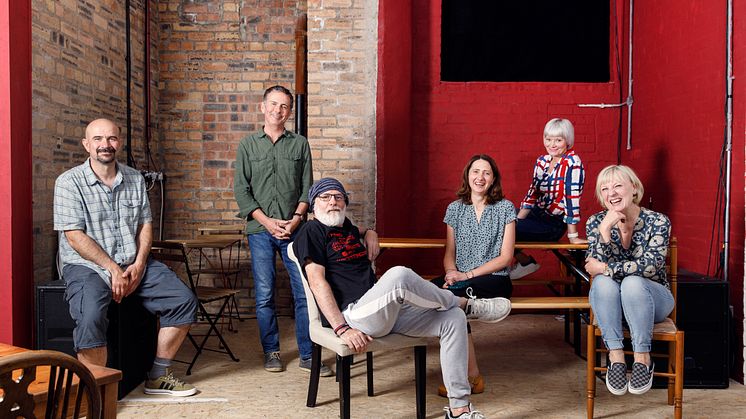
Press release -
The art of social distancing - new project to explore how research and practice in the arts can inform social distancing policy in UK cities
Academics are to work with resilience planners from UK cities to explore how art and performance could be used to establish successful social distancing strategies.
Over the past six months social distancing has become part of everyday life for people around the world and could continue to be so for the foreseeable future as we find new ways of living with the challenge of Covid-19.
But with reports that compliance with social distancing regulations is on the decline, new ideas are being sought to keep people engaged and ensure they adhere to guidelines in cities across the UK.
Academics from Northumbria University, in Newcastle upon Tyne, and Brunel University London have identified an urgent need to understand how to practise, make sense of and sustain city life in the context of social distancing – and that the arts and arts research are vital to that work.
They also aim to highlight the key role the arts have played during the pandemic, and the importance of arts education and research and the arts industry as a whole, especially at a time when the value of higher education is often judged on graduates’ incomes rather than the impact they make on society.
Dr Patrick Duggan and Dr Stuart Andrews have received funding of more than £120,000 through the Arts and Humanities Research Council (AHRC) as part of UK Research and Innovation’s rapid response to Covid-19 fund – set up to support projects which contribute to our understanding of, and response to, the Covid-19 pandemic and its impacts.
Their project, Social Distancing and Reimagining City Life: Performative strategies and practices for response and recovery in and beyond lockdown, will explore the role the arts have played in the public’s response to Covid-19, and how artistic practice and research could inform hazard mitigation planning in UK cities.
Dr Duggan, Associate Professor of Performance and Culture at Northumbria University, explains: “It is clear that social distancing will need to be maintained for some time to come; to make this sustainable, we need to find new and creative models for understanding and participating in city life, helping people cope with social distancing, both practically and emotionally.
“In our research on Performing City Resilience, we have shown that incorporating performance theory and practice in the strategic planning of social distancing at a city level can offer new ways of rethinking city challenges.
“In terms of social distancing, techniques such as using arrows and signs only have limited success – there’s a real need for imaginative ideas, creative practices and new thinking in the ways we’re responding to the pandemic.”
Dr Andrews, Lecturer in Theatre at Brunel University London, added: “The arts are often used when it comes to the messaging element of public health campaigns such as social distancing, for example designing graphics or logos, but they are seldom used in actually developing the strategy behind such campaigns.
“This project will explore how the arts could provide new models for understanding and practising city life, helping people cope with social distancing in the long term.”
Over the next 18 months Dr Duggan and Dr Andrews will work with strategic decision-makers in hazard mitigation, sustainability and resilience from Bristol, Glasgow and Newcastle City Councils, as well as with artists and arts organisations.
They will explore performance practices which have helped people through lockdown and social distancing during the Covid-19 pandemic, for example, Spanish dancer Albert Garcia who, unable to dance freely during Spain’s nation lockdown, took the opportunity to perform for his neighbours each night when taking out his rubbish.
Another example is the weekly clapping for the NHS during the UK’s national lockdown which brought people together in a common practice.
As Dr Andrews explains: “All over the world we have seen examples of art and performance being used during lockdown to allow people to engage creatively and at times collectively with the places in which they live during these restrictions.
“From exploring the ways that artists have responded to Covid-19 and so discovered new ways of practising life and work, to analysing social performances such as musicians performing in their streets for neighbours to enjoy, this project asks how such performances work and, in turn, how, by understanding these performances, we can inform strategy at a city level.”
During the research, Drs Duggan and Andrews will draw on their recent experience of working in New Orleans, where they carried out an interdisciplinary investigation into the usefulness of performance to policies and practices of city resilience.
Their work resulted in the Office of Homeland Security and Emergency Preparedness fundamentally changing their hazard mitigation policy and practice, and in significant changes to the strategies of major arts organisations in the city.
It is hoped this latest social distancing project will lead to new understandings of the place and function of performance, broker creative thinking on response and recovery, and make strategic recommendations for arts strategy, pandemic planning and hazard mitigation policy.
Recommendations from the research will be shared through Core Cities, a network of eleven UK cities, and arts strategy organisations, meaning the findings could lead to changes in social distancing strategy across much of the UK.
It is hoped the project will also shine a spotlight on the role of the arts in our society, and the value placed on higher education degree courses in the arts and humanities.
Dr Duggan concluded: “The value of a particular subject or career is often measured only by how much one can earn, but we can see from the way people have embraced the arts during lockdown that ‘value’ needs to be measured in other ways too.
“I defy anyone to say they haven’t engaged with the arts since March – whether that’s reading, knitting, television, online theatre, radio – the arts are what people have turned to in their millions during this crisis, and yet at the same time we’re being told they are not important.
“We hope this project will highlight how the arts can and should be incorporated into other areas of our lives such as strategy and policy development. We need to rethink the ways the arts are valued in the UK.”
Topics
Categories
Northumbria is a research-rich, business-focused, professional university with a global reputation for academic excellence. Find out more about us at www.northumbria.ac.uk --- Please contact our Media and Communications team at media.communications@northumbria.ac.uk with any media enquiries or interview requests ---









